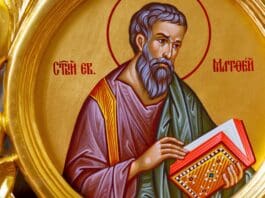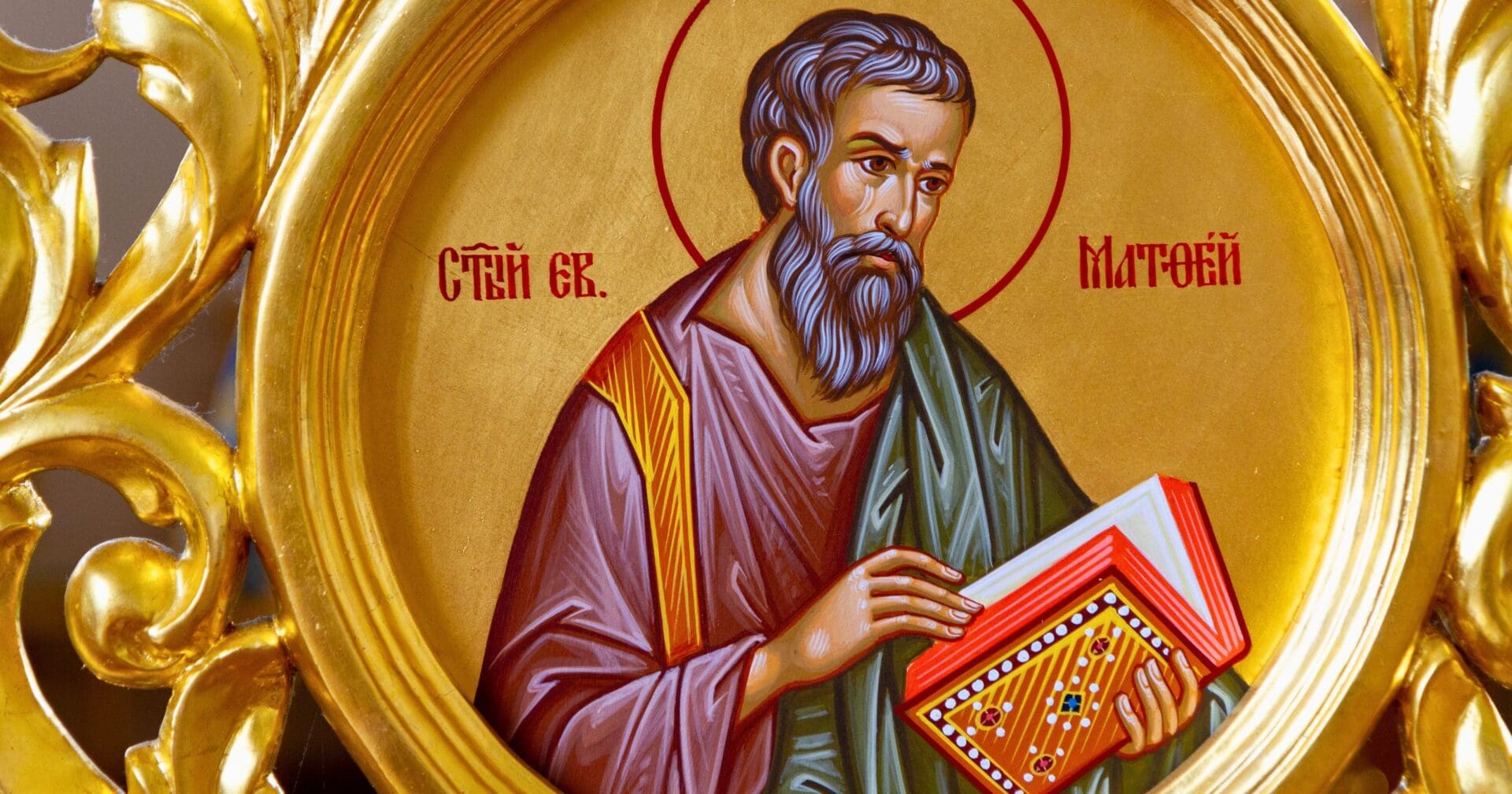
Saint Matthew, one of the twelve Apostles, penned the first Gospel, a fact consistently upheld by Church tradition and substantiated by the Gospel’s content.
Matthew, the son of Alpheus, was a tax collector in Capernaum when Jesus called him to discipleship. Prior to this life-changing event, he was known as a publican, which meant he was professionally involved in tax collection. Interestingly, he is also recognized as “Levi” in the accounts of Mark and Luke.
Initially, Matthew’s evangelistic endeavors were concentrated within the confines of Palestinian communities. His later years remain shrouded in mystery. There are tales that suggest he might have preached in Ethiopia, while other stories hint at his work in Parthia or Persia. It remains debatable whether he passed away naturally or was martyred for his faith.
Matthew’s Gospel emerged from a palpable need among his Palestinian peers, addressing both believers and skeptics. For the faithful, it was a gesture of solidarity and a source of fortitude against impending adversities, particularly the temptation to revert to Judaism. For the skeptics, it was a testament to the arrival of the Messiah in the form of Jesus, signifying the spiritual realization of the Messianic Kingdom that transcends earthly realms, as Jesus said, “My Kingdom is not of this world.” This Gospel became a response to the query posed by St. John the Baptist’s followers: “Are You the One who is to come, or should we await another?”
Targeting a Palestinian audience, Matthew initially wrote his Gospel in Aramaic, referred to as the “Hebrew tongue” in both the Gospel and Acts of the Apostles. He is believed to have ventured to foreign lands around the time of Herod Agrippa I’s persecution in 42 AD. Some believe he penned his Gospel between 42 AD and the Council of Jerusalem in 50 AD, or perhaps even later. However, the depiction of an undestroyed Jerusalem in his Gospel, without hinting at the city’s prophesized downfall, suggests it was written before the Romans decimated it in 70 AD. This inference aligns with early traditions.
Editorial credit: Adam Jan Figel / Shutterstock.com
The post Saint Matthew the Apostle appeared first on uCatholic.
Daily Reading
Thursday of the Second Week in Ordinary Time
Reading 1 Hebrews 7:25—8:6 Jesus is always able to save those who approach God through him, since he lives forever to make intercession for them. It was fitting that we…
Daily Meditation
Finding Solace in Jesus
Click here for daily readings “He had cured many, and, as a result, those who had diseases were pressing upon him to touch him” (Mk 3:10). This scene opens with…




